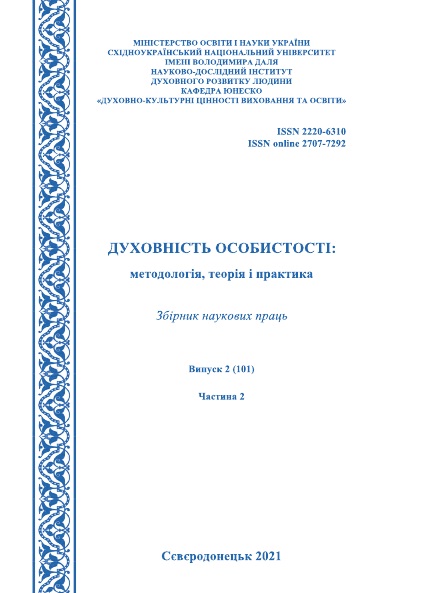FORMATION OF CRITICAL THINKING IN THE PROCESS OF STUDYING THE COURSE "SOCIAL AND POLITICAL STUDIES" IN HIGHER SCHOOL
DOI:
https://doi.org/10.33216/2220-6310-2021-101-2_2-192-199Keywords:
Critical thinking, socio-political studios, learning strategies, educational environment, problem situation, analytics, subjectAbstract
The article presents a meaningful analysis of learning strategies and the characteristics of the educational environment, contributes to the development of critical thinking, freedom, and independence of students. The paper substantiates that the achievement of the planned results during the training of socio-political disciplines should occur due to the solution of problem situations. It is shown that educational tasks can be related on the basis of studying scientific texts of social philosophers, sociologists, political scientists or journalistic materials of socio-political issues, mental experiments, conducting business games in which real situations or problems are simulated. It was found that the real goal of learning to improve critical thinking is to apply the acquired skills in real life, that is, to use them in practice. The critical thinking skills acquired during the course of training in socio-political research are necessary to recognize unfulfillable campaign promises, arguments that themselves require proof, false probabilistic thoughts, weak arguments or obvious sophistry. It has been proven that students who have acquired critical thinking skills are better at solving their own problems, professional or ideological. If a student thinks critically, he constantly denies what appears to be obvious, thereby helping to find new approaches and solutions. The paper deals with the problem of critical thinking disposition. On the example of problematization of the idea of the Platonic state and the Foucault analysis of the social institution of education, the article highlights the possibilities of improving students' critical thinking. Such possibilities have been demonstrated in the process of their own sociological research.

